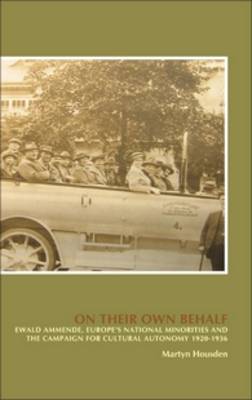On the Boundary of Two Worlds
2 primary works
Book 12
This is the first attempt to redress the injustice done to the memory of German minorities by the popular equation of 'Lebensraum' and Nazism; minorities, many of whom chose to be neighbours rather than enemies and who over time peacefully shared with other nationalities the territorial space east of the Reich. Their borderland experiences, particularly in the Baltic region, the historic interface between East and West, are all the more relevant as Hitler's regime recedes into the past and Europe seeks to renew itself in the wake of the Cold War.
Book 37
What form should Europe take? Should it be based on 'nation states' or 'states of nations'? On what basis should European unification proceed? Should it be an elite undertaking pioneered by statesmen elected to democratic government offices, or should true unification also demand a significant European cultural forum open to spokesmen and -women representing the continent's nationality groups? Was the League of Nations really such a thing? Or was it a League of States? All these questions were posed by Ewald Ammende and his fellow minority associates during the 1920s. Coming to terms with the consequences of collapsed empires and at least four years of conflict, they were forced to consider how best to re-build their continent as if it were a tabula rasa. In the process, they provided intelligent, perceptive analyses of the national and international affairs of the day, particularly as they affected Central and Eastern Europe. Their voices, reflecting their status as national minorities and a geographical location beyond the borders of the post-war Great Powers, deserve to be written more thoroughly into the history of the interwar years. Their ideas still provide food for thought even today.

